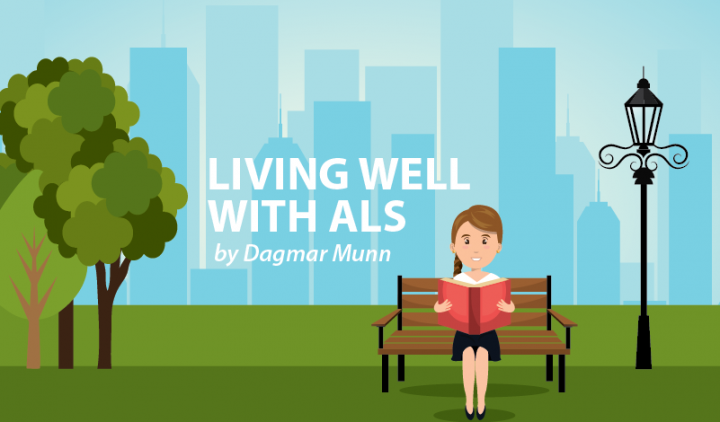Fighting Another Cold While Managing ALS
Written by |

This time around, I really, really tried not to let it happen. But it did. I washed my hands. I avoided all contact with suspicious “others,” and even hauled around a good-sized tub of disinfectant wipes. All my valiant efforts made the world around me a little cleaner, but in the end, it happened anyway. Yup, I caught a cold.
Unfortunately, my ALS only amplified the cold’s symptoms, resulting in killer itchy eyes, double-sneezes, and wobbly legs. At least, that’s all I can remember, right before my energy hit rock bottom and, poof, a whole week completely disappeared along with more than one box of Kleenex!
During moments of clarity, I lulled myself with random internet searches for common cold cures. I was surprised to learn that ALS and the common cold have a few things in common. For both conditions, the medical community knows a tremendous amount about what they do to our bodies, less about the best way to treat them, and still barely anything regarding a cure. That leaves us with medicine that only manages or relieves symptoms.
Even the home remedies for colds sound eerily similar to those I’ve read about for ALS. There was mention of ginger, cayenne pepper, mustard, and coconut oil; plus secret ingredients, mixtures, and recipes that included most of the spice aisle at my local grocery store.
One fellow with ALS swore that a daily application of coconut oil to the bottom of his feet pulled toxins from his body. I sure don’t want to be around when he takes his shoes off! In another post, a woman recommended mixing onion juice with honey to help children with a cough. And I sure don’t think many kids would want to drink that “treat”!
I decided to pass on the home remedies and instead relied on a few trusted over-the-counter brands. They let me rest and slowly move toward recovery.
Of course, many differences also exist between the cold and ALS. According to the latest statistics, we catch a cold an average of two to four times a year, and they last five to nine days. For ALS, the lifetime incident rate is between 1 in 400 and 1 in 600, and a person with ALS lives an average of two to five years following diagnosis.
Eventually, the body’s immune system overtakes the cold virus and the cold goes away. ALS doesn’t go away. That’s one reason the common cold doesn’t get to have its own awareness month; it doesn’t need one since it isn’t chronic. But ALS certainly does!
Speaking of which, ALS Awareness Month is right around the corner, in May. In the U.K., June is MND Awareness Month, giving us a double-whammy of awareness opportunities happening around the world. I’m looking forward to joining in and helping to raise the bar toward finding a cure for ALS. How about you? Let’s work together to bring this disease to an end. We’re ready for the remedy to ALS (and one for the common cold wouldn’t hurt, either).
***
Note: ALS News Today is strictly a news and information website about the disease. It does not provide medical advice, diagnosis, or treatment. This content is not intended to be a substitute for professional medical advice, diagnosis, or treatment. Always seek the advice of your physician or other qualified health provider with any questions you may have regarding a medical condition. Never disregard professional medical advice or delay in seeking it because of something you have read on this website. The opinions expressed in this column are not those of ALS News Today or its parent company, Bionews Services, and are intended to spark discussion about issues pertaining to ALS.







Patrcia
Hi Dagmar, not sure if you will eventually read this comment that is mostly a question ( I went back looking for a particular topic and decided to read this column from last year).
Is about the statistics about the live expectancy of an ALS person. I have read about two versions:
2-5 years after diagnosis and
2-5 years after the first symptoms
As you know ALS is not easy to diagnose, sometimes years pass without people knowing what is wrong with them. I asked my Dr. and his opinion was after the first symptoms, and made clear to notice this is just average.
Would you clarify where the bases from "after the diagnosis " is based on? Please, don't think I am challenging you or anyone, I am just curious and would like to know the right definition, maybe other doctors refer to those randomly.
If you can, would you please answer to my email? it would be easier for me to find it. Thanks
healthy and happy
Drinking ginger tea helps in curing cold, the post was worth reading